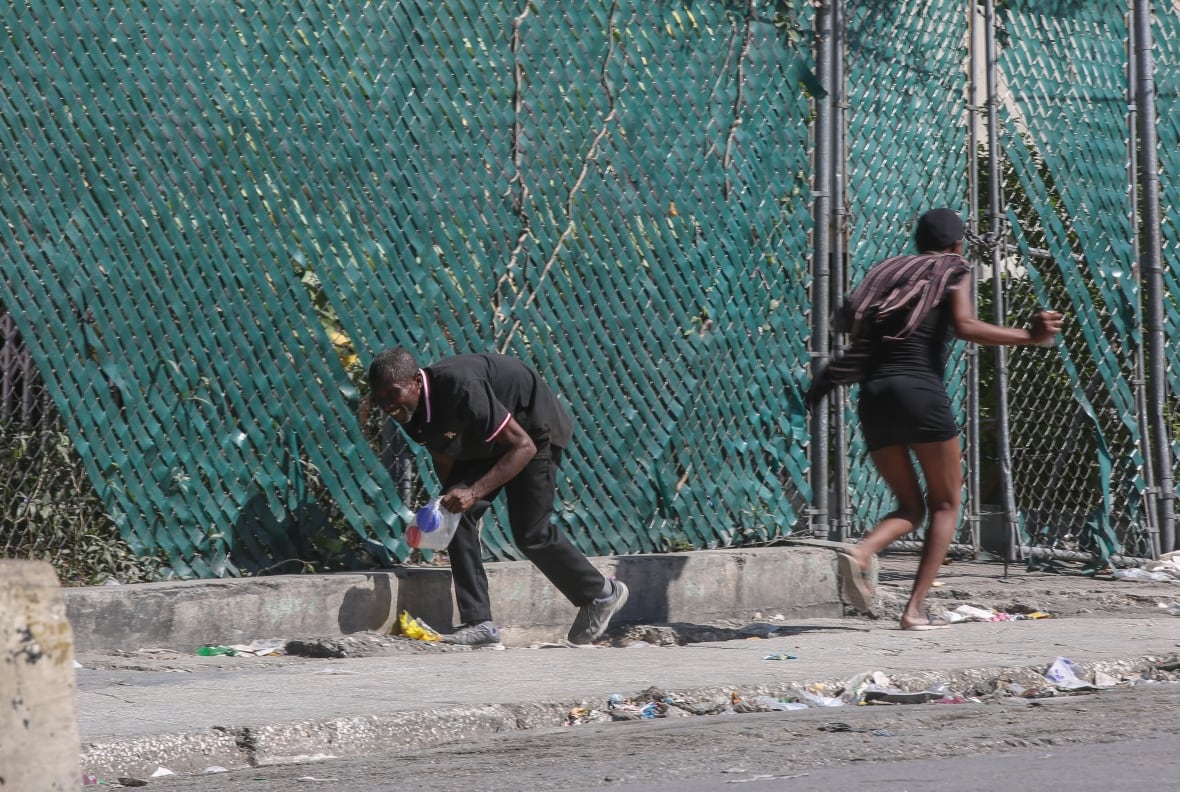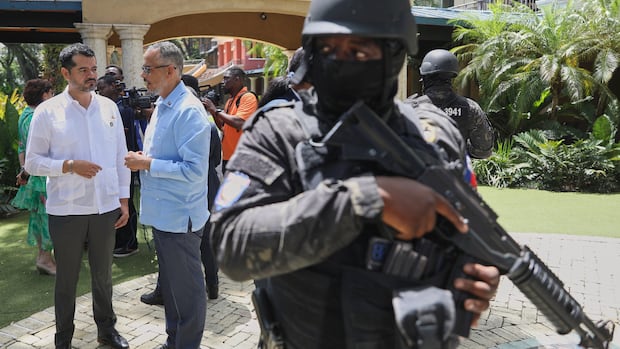Haiti’s battle against criminal gangs has leaned into the lethal use of drones this year, with senior officials defending the tactic that some outside parties, including Canada’s government, have voiced qualms about.
The embattled Caribbean nation has been struggling to expel the powerful armed gangs that senior United Nations officials say have taken “near-total control” of the capital, Port-au-Prince.
The gangs’ reach extends beyond the capital, though, with violence surging in Haiti’s central region, where three police officers and two civilians were slain this week.
The Haitian National Police (HNP) is one player in the effort to oust these gangs, and the country is also receiving some support on this front from a UN-backed mission led by Kenyan police.
But the state has also looked to drones to both conduct surveillance on gangs and to strike them.

These strikes, led by a government-created task force and supported by private contractors, have drawn media attention for months — including when a prominent gang leader, Jimmy “Barbecue” Chérizier, said he’d survived a strike involving explosive drones.
“The population has had it up to here, and the government cannot just sit and watch,” Fritz Alphonse Jean, chair of Haiti’s transitional presidential council, told the Financial Times earlier this month, arguing the strikes are needed to defeat the gangs.
Yet some observers believe the use of drones to hit back against the gangs falls short of a legal standard for the use of such weapons, even if Haiti faces sustained pressure from those adversaries.
“The intentional use of lethal force by law enforcement is legal under international human rights law only when it is strictly unavoidable to protect life [when] facing an imminent threat, and as a last resort when other less lethal alternatives — such as capture or non-lethal incapacitation — have been exhausted,” William O’Neill, the UN’s designated expert on human rights in Haiti, recently told the Economist.
Canada has donated drones for non-lethal use
That raises questions for Canada, which has provided drones to Haiti — though not of a type designed for lethal use, according to the federal government.
“Canada has donated surveillance drones to the Haitian National Police with the intent to help reduce the danger faced by uniformed officers as they conduct patrols,” Global Affairs Canada told CBC News in a statement.
“None of the drone models that have been provided by Canada were designed or intended for lethal use or load transport.”

That said, Canada “is concerned by reports of extrajudicial executions, which are a violation of international human rights law, and continues to call on Haiti to respect all domestic and international laws in its efforts to restore security in the country, including in its use of drones.”
Global Affairs Canada did not clarify if Ottawa definitively knows of cases in which Canadian-provided drones have been used for lethal purposes in Haiti.
But it said Haiti had agreed that the equipment provided would not be used “to commit or facilitate any violation of international humanitarian law or international human rights law.”
Diego Da Rin, a Haiti analyst with the International Crisis Group, a global think-tank, said the HNP needs these tools for surveillance, particularly because gangs are using them for the same purpose.
“Several gangs have been using drones to collect intelligence to conduct operations,” he said in a telephone interview, noting these gangs are not known to be using strike drones.
The Réseau National de Défense des Droits Humains, a local human rights group, said in June that it believed the state’s drone strikes had killed at least 300 gang members and wounded another 400.
CBC News asked the United Nations Integrated Office in Haiti (BINUH) whether it has concerns about the lethal use of drones by Haitian forces against gangs within the country.
“Regarding the lethal use of force by law enforcement in operations, it should be conducted in respect of human rights and adhere to the principles of necessity, proportionality, and precaution,” spokesperson Mathias Gillmann said in an email.
Gillmann said a communication channel had been established with the HNP’s General Inspectorate “through which documented cases of human rights violations potentially involving police officers are referred for further investigation and the adoption of appropriate administrative and legal measures.”
Prolonged instability
Haiti has faced years of instability following the assassination of President Jovenel Moïse in July 2021. The country has not had a president since.
Ariel Henry, who served as acting prime minister and led Haiti’s government after Moïse’s assassination, stepped down from his role after gang-driven turmoil erupted while he was outside the country.
The Canadian ambassador to Haiti, André François Giroux, discusses growing gang violence in the Caribbean nation and Canada’s role in helping to restore stability.
A transitional council took power after Henry’s departure. The council appointed Alix Didier Fils-Aimé as prime minister last November.
The challenges the government faces in quelling the gangs were on display on Wednesday, as a police union demanded officials do more to protect officers on the ground.
“The government does not give the police any importance. If they took this seriously, they would have made the means and support available to the police and the military to end the insecurity,” the SPNH-17 union said, in the wake of the killing of the three officers in central Haiti. “Too many police officers have fallen.”
The transitional presidential council said the government was mobilizing all necessary resources to investigate the killings and honour the memory of those slain.





More Stories
Wildfires scorch large swaths of southeast Europe and the Balkans
Torrential rain, flooding hit parts of northern China
Mother, newborn among at least 36 killed in Israeli strikes as some aid trickles in